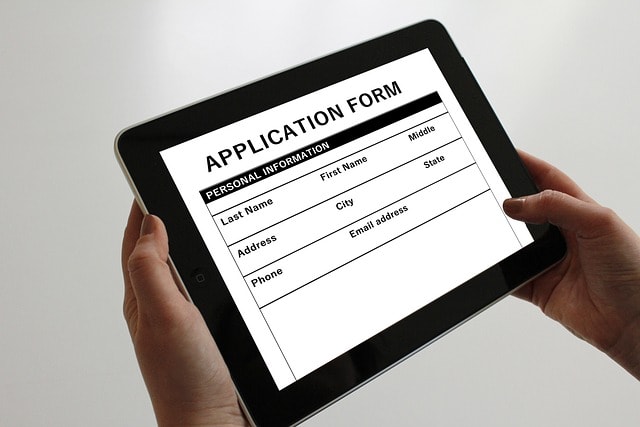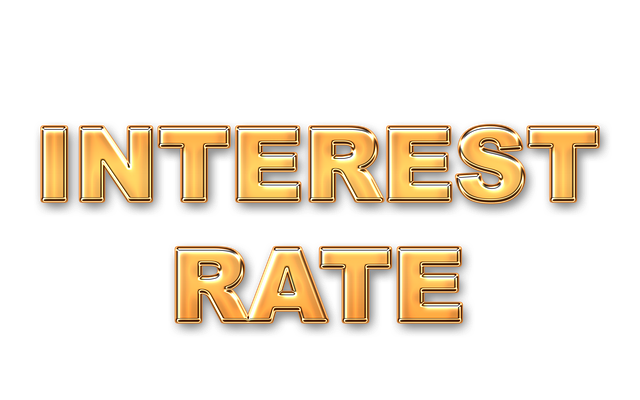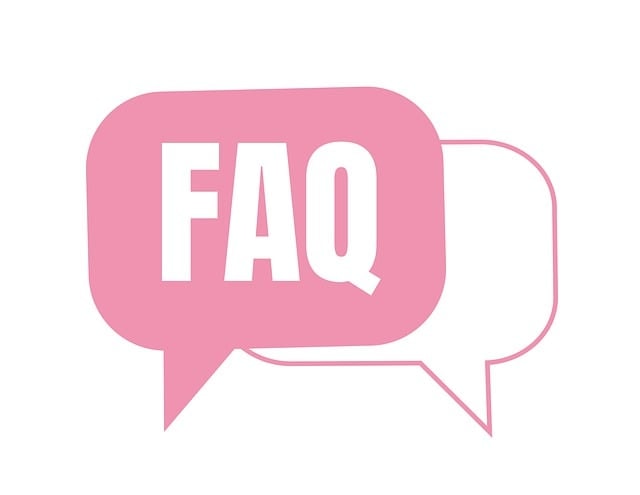Starting a business is a dream many people share, but finding the right funding to make that dream come true can be tough. This guide will walk you through everything you need to know about gov loans small businesses need, from the different loan options available to tips on how to choose the right one for your startup. Whether you’re just getting started or looking to grow, these loans and grants are designed to help small businesses succeed.
What Are Gov Loans for Small Business?
Government loans for small businesses are loans backed by the government to support small companies in the U.S. These loans provide funding to help business owners start, grow, and sustain their businesses. By reducing the risk for banks, government loans make it easier for small businesses to secure financial support. Plus, the government often offers better interest rates and flexible terms to make repayment more manageable.

Related: How to Get a Big Business Loan: Tips and Tricks
Types of Gov Loans Small Businesses
Government-backed loans come in many forms. Let’s take a look at some of the most popular ones and see how they can benefit small businesses.
1. SBA 7(a) Loan Program
The Small Business Administration (SBA) is one of the top government organizations offering loans to small businesses. The SBA 7(a) Loan Program is their most popular program. It’s perfect for businesses needing funding for:
- Working capital
- Buying equipment
- Refinancing debt
- Purchasing property
These loans offer flexible terms and reasonable interest rates, helping small business owners get a good start.
2. SBA Microloan Program
For smaller funding needs, the SBA Microloan Program is an ideal option. Microloans are designed to provide up to $50,000 to small businesses or non-profit childcare centers. The funding can help with day-to-day operations or buy essential supplies. These loans are perfect for small businesses just starting out or those with modest funding needs.
3. SBA CDC/504 Loan Program
The SBA CDC/504 Loan Program is great if you want financing to buy fixed assets like buildings or equipment. With this loan, you get long-term financing to help fund and grow your business. The loan works by partnering with private lenders and Certified Development Companies (CDCs) to fund your needs with low, fixed interest rates.
4. Government Grants for Small Businesses
Unlike loans, grants don’t need to be paid back. The government offers grants for small businesses through various programs, with federal funds such as the Small Business Innovation Research (SBIR) and Small Business Technology Transfer (STTR) programs. These grants are highly competitive, and they are mostly available for research and tech-based businesses.
5. USDA Business and Industry Loans
If your business operates in a rural area, the USDA Business and Industry Loan program might be just right for you. It supports rural businesses with funding options to buy land, equipment, or cover operating expenses. This program aims to improve and promote economic growth, and create jobs in rural communities.
6. Small Business Lending Fund (SBLF)
The Small Business Lending Fund (SBLF) was a nonprofit organization established to provide capital to small businesses through qualified community banks and Community Development Loan Funds (CDLFs). It encourages small business lending, which promotes economic growth, supports local communities, and small business jobs act and helps small businesses create jobs.
7. Disaster Loans for Small Businesses
The SBA Disaster Loan program helps small businesses that are affected by natural disasters. If your business or personal property faces physical damage or economic hardship from a declared disaster, these loans provide affordable funding options to repair, rebuild, and recover.
8. Export Loans for Small Businesses
If you’re new small business looking to expand internationally, the SBA’s Export Loan Program is a great option. It helps small businesses with funding to support export activities, buy equipment, or manage cash flow for international trade.

- Amount = $5,000 to $500,000
- Loan Term = 4 to 24 months
- Interest Rate = 1.11%
4.8
editorial team. We score based on factors
that are helpful for consumers, such as
how it affects credit scores, the rates and
fees charged, the customer experience,
and responsible lending practices.
- Min. Amount = $10,000
- Max Amount = $500,000
- APR = Factor rate starting at 1.11%
4.8
editorial team. We score based on factors
that are helpful for consumers, such as
how it affects credit scores, the rates and
fees charged, the customer experience,
and responsible lending practices.
Best for large business loans

- Loan Amount = $25,000 - $3,000,000
- $10,000 in Monthly Rev
- No minimum credit score requirement
4.9
editorial team. We score based on factors
that are helpful for consumers, such as
how it affects credit scores, the rates and
fees charged, the customer experience,
and responsible lending practices.
Best for large business loans

- Min Amount = $5,000 - 1,500,000
- APR range Not disclosed
- Minimum Credit Score 570
4.7
editorial team. We score based on factors
that are helpful for consumers, such as
how it affects credit scores, the rates and
fees charged, the customer experience,
and responsible lending practices.
Best for Small business loans

- Min Credit Score = 620
- Loan Amount = $10K-$5M
- Term = 6 months - 10 years
- APR = Variable
4.8
editorial team. We score based on factors
that are helpful for consumers, such as
how it affects credit scores, the rates and
fees charged, the customer experience,
and responsible lending practices.

- Check Your Eligibility
- Get $10K to $2M
- 24/7 Support
4.8
editorial team. We score based on factors
that are helpful for consumers, such as
how it affects credit scores, the rates and
fees charged, the customer experience,
and responsible lending practices.

- Amount = $10,000 to $1,000,000
- Factor Rate = Starting at 1.24
- Term = 2 to 12 months
4.7
editorial team. We score based on factors
that are helpful for consumers, such as
how it affects credit scores, the rates and
fees charged, the customer experience,
and responsible lending practices.
Related: Startup Business Loans for Bad Credit Guaranteed

How to Apply for a Gov Loan Small Business
Applying for a government loan for your small business can initially seem like a daunting task, but breaking it down into manageable steps can simplify the process. First and foremost, it is essential to determine your funding needs. This involves a thorough assessment of the amount of funding required and the specific purposes for which it will be used, such as purchasing equipment, expanding operations, or covering operational expenses. Having a clear understanding of your financial needs will guide you in selecting the most suitable loan program.
Once you have a grasp on your funding requirements, the next step is to research the various loan options available. The government offers a range of loan programs, each tailored to different business needs. Whether you are considering an SBA loan, a grant, or an industry-specific loan, it is crucial to choose the option that aligns with your business goals and financial situation. Understanding the different loan programs will help you make an informed decision that can benefit your business in the long run.
Preparing a comprehensive business plan is a critical part of the loan application process. Lenders need to see a well-structured business plan that outlines your business goals, revenue projections, and strategies for growth. A solid business plan not only demonstrates your commitment and preparedness but also provides lenders with the confidence that you have a clear vision for your business’s future.
Before submitting your application, it is vital to check the various eligibility criteria and requirements for the loan program you are interested in. Each program has specific eligibility requirements and criteria, that applicants must meet, and ensuring you fulfill these requirements will prevent unnecessary delays or rejections. Additionally, gathering all necessary financial documents is a crucial step. This includes tax returns, income statements, and balance sheets, which provide a comprehensive picture of your business’s financial health.
Choosing the right lender is another significant aspect of the application process. It is advisable to apply with a trusted lender, such as a qualified community bank or an institution recommended by government agencies like the SBA or USDA. These lenders are familiar with government loan programs and can offer guidance throughout the application process.
Finally, after submitting your application, it is important to follow up with your lender. Staying in contact allows you to track the progress of your loan application and address any additional information or documentation requested loan or requests promptly. By following these steps, you can navigate the application process with confidence and increase your chances of securing the government loan your new small business really needs to thrive.
Related: What Do You Need for a Small Business Loan? Essential Steps for Success
Benefits of Gov Loans for Small Business
Government loans offer several unique benefits for small business owners, including:
Lower Interest Rates – Most government-backed loans offer competitive, fixed interest rates, making them an attractive option for small business owners looking to manage their expenses effectively. These lower interest rates help reduce the overall cost of borrowing, allowing businesses to allocate more funds towards growth and development initiatives.

Flexible Repayment Terms – SBA loans, for instance, provide flexible terms that are easier to manage, accommodating the unique financial circumstances of small businesses. These flexible terms can include extended repayment periods, which can help small businesses maintain a steady cash flow and avoid financial strain during slower business periods.
Increased Approval Chances – The backing by the government decreases the risk for lenders, making it easier for small businesses to get approved. This increased likelihood of approval is particularly beneficial for startups and businesses with limited credit histories, as it opens up opportunities for accessing much-needed working capital.
Additional Support and Resources – Some loans, like SBA loans, come with technical assistance and other resources to help your business grow. This support and resources can include business counseling, mentorship programs, and access to workshops and resources that equip small business owners with the skills and knowledge needed to succeed. Such additional resources are invaluable in helping businesses navigate challenges and capitalize on new opportunities.
Industry-Specific Loans for Small Businesses
Some industries require specific types of loans due to their unique needs. Here are a few examples:
- Agricultural Loans – The USDA provides loans for farms and other agricultural businesses to support production.
- Tech Startups – Programs like the SBIR and STTR grant funding to tech-focused small businesses.
- Women-Owned Small Businesses – There are special programs and loans designed to support women entrepreneurs.
Local Funding Options
Local governments and state economic development agencies offer their own loan and grant programs to encourage small business lending. Many states provide funding options specifically designed to support local small businesses and boost the local economy. Be sure to check with your state and city for these opportunities.
Alternative Funding Solutions
Not every small business fits neatly into the qualifications for government loans. Fortunately for small business jobs, there are several alternative funding solutions available that can provide the necessary working capital to help your business thrive. These options offer flexibility and accessibility, catering to the unique needs of small business owners:
Crowdfunding – This innovative approach allows entrepreneurs to raise money through platforms like Kickstarter or GoFundMe. By reaching out to a broad audience, small businesses can generate funds from individuals who believe in their vision. Crowdfunding not only provides financial support to help, but also helps build a community of supporters and potential customers who are invested in the success of the business.
Invoice Financing – For businesses with outstanding invoices, borrowing against unpaid invoices can be a practical solution to maintain a steady cash flow. This method allows business owners to access funds tied up in accounts receivable, enabling them to cover operational expenses and invest in growth opportunities without waiting for clients to pay.

- Amount = $5,000 to $500,000
- Loan Term = 4 to 24 months
- Interest Rate = 1.11%
4.8
editorial team. We score based on factors
that are helpful for consumers, such as
how it affects credit scores, the rates and
fees charged, the customer experience,
and responsible lending practices.
- Min. Amount = $10,000
- Max Amount = $500,000
- APR = Factor rate starting at 1.11%
4.8
editorial team. We score based on factors
that are helpful for consumers, such as
how it affects credit scores, the rates and
fees charged, the customer experience,
and responsible lending practices.
Best for large business loans

- Loan Amount = $25,000 - $3,000,000
- $10,000 in Monthly Rev
- No minimum credit score requirement
4.9
editorial team. We score based on factors
that are helpful for consumers, such as
how it affects credit scores, the rates and
fees charged, the customer experience,
and responsible lending practices.
Best for large business loans

- Min Amount = $5,000 - 1,500,000
- APR range Not disclosed
- Minimum Credit Score 570
4.7
editorial team. We score based on factors
that are helpful for consumers, such as
how it affects credit scores, the rates and
fees charged, the customer experience,
and responsible lending practices.
Best for Small business loans

- Min Credit Score = 620
- Loan Amount = $10K-$5M
- Term = 6 months - 10 years
- APR = Variable
4.8
editorial team. We score based on factors
that are helpful for consumers, such as
how it affects credit scores, the rates and
fees charged, the customer experience,
and responsible lending practices.

- Check Your Eligibility
- Get $10K to $2M
- 24/7 Support
4.8
editorial team. We score based on factors
that are helpful for consumers, such as
how it affects credit scores, the rates and
fees charged, the customer experience,
and responsible lending practices.

- Amount = $10,000 to $1,000,000
- Factor Rate = Starting at 1.24
- Term = 2 to 12 months
4.7
editorial team. We score based on factors
that are helpful for consumers, such as
how it affects credit scores, the rates and
fees charged, the customer experience,
and responsible lending practices.
Personal Funds – Utilizing community development loan funds from your own savings or personal funds can be a viable option if other funding sources are not readily available. While it may involve some level of personal risk, investing encourage a small business lending fund with your own money demonstrates confidence in your business and can serve as a stepping stone to securing additional such funding opportunities in the future.
Angel Investors – These are individuals nonprofit organizations who provide capital to startups and small businesses in exchange for equity or convertible debt. Angel investors often bring valuable expertise and mentorship, offering guidance and financial assistance to help businesses navigate challenges and achieve their goals.
Venture Capital – For businesses with high growth potential, venture capital firms can provide substantial investment in exchange for equity. While this option may require relinquishing some control over the business, it offers access to significant resources and industry connections that can accelerate growth and create jobs and expansion for profit company.
Peer-to-Peer Lending – Online platforms facilitate direct lending between individuals eligible small businesses, offering small business jobs an alternative to traditional bank loans. This option can provide more favorable terms and faster access to funds, making it an attractive choice for small businesses seeking quick capital.
By exploring these alternative funding solutions, small business owners can find the financial support they need to overcome challenges and seize new opportunities. Whether through community-driven crowdfunding or strategic partnerships with investors qualified community banks, these options empower entrepreneurs to pursue their dreams and drive local level and economic growth.

How to Choose the Right Loan for Your Business
When selecting a loan, keep these factors in mind:
- Interest Rates – Choose a loan with a manageable interest rate to keep your monthly payments low.
- Loan Amount and Term – Ensure that the loan amount and term align with your business needs and repayment ability.
- Lender Reputation – Look for lenders that have experience working with small businesses.
Tips for Success in Securing Gov Loans for Small Business
Securing funding takes some work, not free money, but these tips can help improve your chances:
Have a Clear Business Plan – This shows lenders you’re serious and have thought through your small business lending model. A detailed business plan not only demonstrates your commitment but also outlines your strategies for growth and revenue projections. It serves as a roadmap for your small business lending fund’s future and gives lenders confidence that you are prepared to manage the loan effectively.
Maintain Good Credit – A strong credit history helps build trust with lenders. Keeping your personal and business credit scores healthy increases your chances of loan approval. Regularly review your credit reports to ensure accuracy, pay your bills on time, and manage your debts responsibly to maintain a favorable credit profile.
Seek Professional Help if Needed – Accountants and financial advisors can help you prepare your documents and application. These professionals can provide valuable insights into your financial health, assist in creating realistic financial projections, and ensure that your application is complete and accurate. Leveraging their expertise can enhance your application and improve your chances of securing the loan.
Research Loan Options Thoroughly – Understand the different types of government loans available and choose the one that best fits your small business lending needs. Each loan program has specific eligibility requirements, and benefits, so it’s important to align your choice with your business goals. Whether it’s an SBA loan for working capital or a USDA loan for rural development, selecting the right loan can make a significant difference in your business’s success.
Prepare All Necessary Documentation – Gather all required documents, including financial statements, tax returns, and business licenses. Having these documents ready will streamline the application process and demonstrate your preparedness to lenders. Ensure that your documentation is up-to-date and accurately reflects your business’s financial position.
Demonstrate Business Viability – Show lenders that your business has a strong potential for success. Highlight your business’s unique value proposition, market demand, and competitive advantage. Providing evidence of past successes, such as steady revenue growth or a loyal customer base, can strengthen your application and reassure lenders of your business’s viability.
Build Relationships with Lenders – Establishing a good rapport with potential lenders can be beneficial. Attend networking events, join business associations, and engage with local banks or credit unions to build connections. These relationships can provide you with valuable insights into the lending process and increase your chances of receiving favorable loan terms.
Government loans for small businesses are a powerful resource to help entrepreneurs achieve their dreams. From SBA loans and grants to USDA programs, there are plenty of options for small business owners looking to start or grow. By choosing the right loan and following the application process, you can secure the funding needed for a strong start.

Frequently Asked Questions
Does the government lend money for a business?
The Small Business Lending Guarantee program assists in creating and qualifying small businesses to promote economic growth, retaining job creation, and local support and encourages investments and small business jobs in poor to moderately deprived neighborhoods and communities. Small Business lending guarantees are available for businesses throughout California, serving hundreds of small businesses every day.
Is the government giving out money to start a business?
Finance your small businesses. The company may need the money for financing to fund their recovery from the catastrophe. The government doesn’t give money for starting up business in Canada. However the business owner can also obtain cash from a variety of sources. It includes direct loans or borrowing money from a private account.
What government agency lends money to small businesses?
The Small Enterprise Finance Department provides a variety of loan assistance programs. Most SBA loans are combined with other federal grants for business support and technical assistance, and financing at a more competitive terms streamlined rate.
What credit score do I need to get a small business loan?
The minimum loan approval amount usually runs between 600 and 660, depending on the lending agency and loan type. Traditional banks often demand higher scores (around 608), while other financial providers can accept lower scores (500 – 900).


 Read More
Read More 




